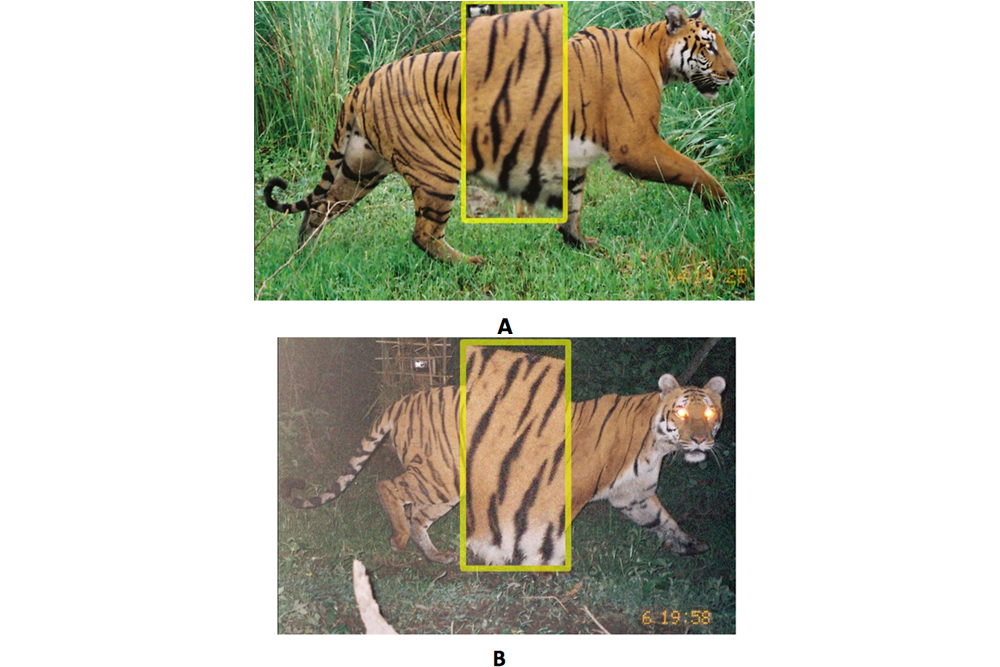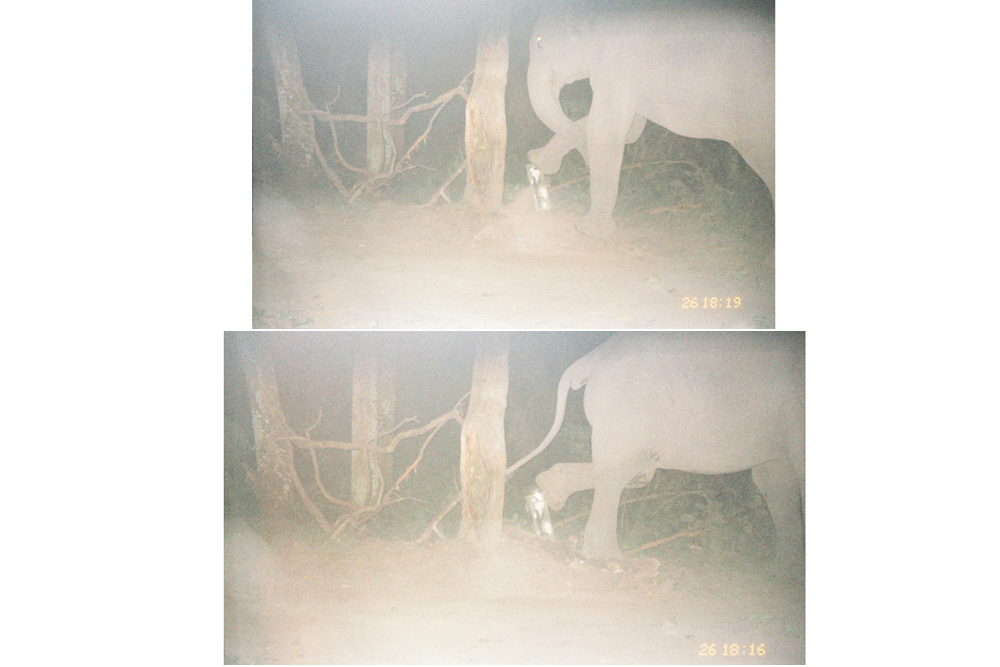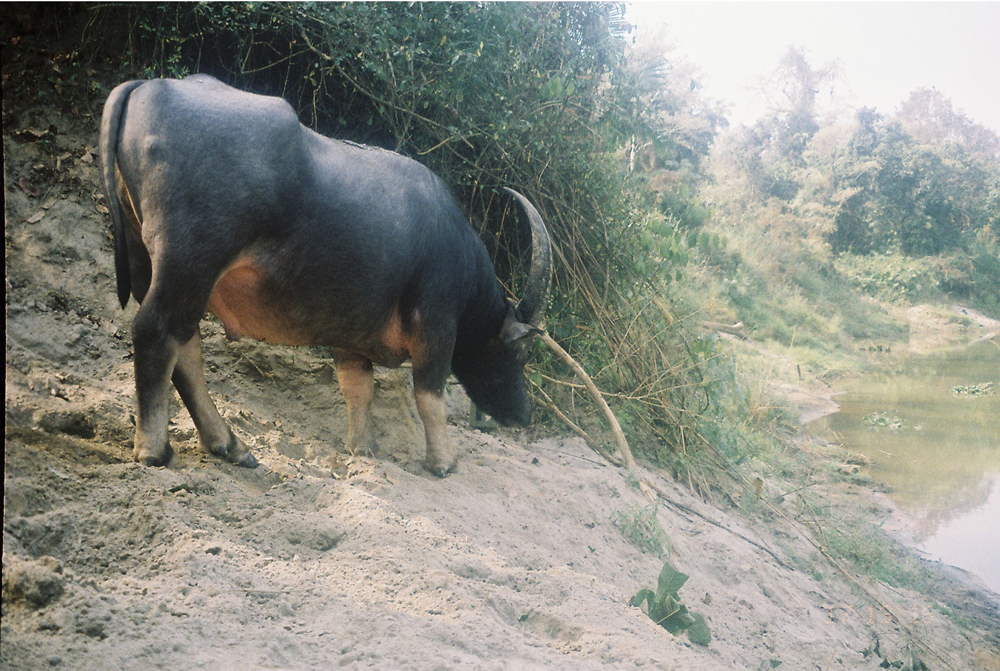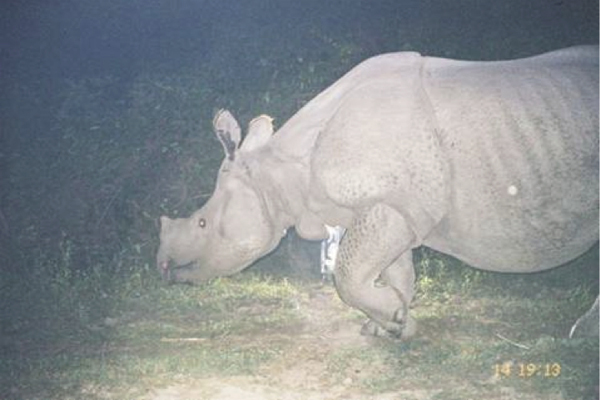
In Images: Tigers Thrive in India National Park
Comparing stripes

Researchers with Aaranyak, a conservation group in India, identify tigers by comparing their stripes. There are approximately 100 tigers in Kaziranga National Park, where these two tigers roam.
"Kung-fu elephant"

Photos show an elephant destroying one of Aaranyak's remote cameras, which cost $1,000 and are imported from the United States. The cameras are typically mounted as pairs to snap each side of a passing tiger. Elephants don't like the flash, and do their best to destroy the camera traps, said conservation biologist Firoz Ahmed, who dubbed the animal "kung-fu elephant" for its front and back kicks.
Illegal logging

Illegal logging inside a tiger preserve in India. The endangered animals face increasing population pressure from people who wish to clear forest land for logging and farming, said biologist Firoz Ahmed of the conservation group Aaranyak.
Water buffalo

A water buffalo stops for a drink in front of a camera trap in Kaziranga National Park in northeastern India's Assam state.
One-horned Rhino

Kaziranga National Park, in northeastern India, is a conservation success story for the Asian one-horned rhinoceros. More than 2,000 rhinos live in the park, of the approximately 3,000 worldwide. Only a few dozen were left in the wild in the early 20th century.
Burning bright

A tiger looks at a flashing camera trap in Kaziranga National Park in India.
Restful bath

A tiger rests in water in this well-known photo by conservation biologist Firoz Ahmed. Ahmed works for the non-profit wildlife conservation group Aaranyak, which tracks and monitors tigers throughout India.
Get the world’s most fascinating discoveries delivered straight to your inbox.

 Live Science Plus
Live Science Plus





